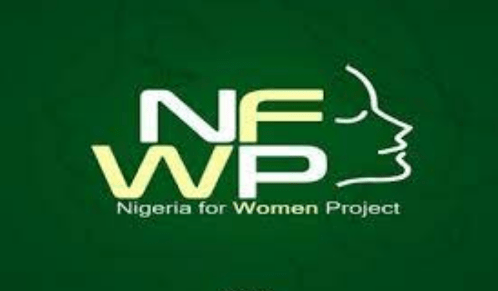Nigeria For Women Project – Empowering Women for Sustainable Business and Environmental Impact
Nigeria is the country with the second-lowest percentage of the global population without access to clean cooking solutions, after only China and India. Because of this, the majority of Nigerians have turned to utilizing firewood as a coping method for the difficult economic circumstances in their country for cooking, heating, and other household tasks. Regrettably, a considerable proportion of Nigerian women experience health problems as a result of extended exposure to firewood smoke; the World Health Organization estimates that this source contributes to over 98,000 fatalities each year.
Every morning in Maiyama, a rural community in Kebbi state, northeastern Nigeria, Rukayya Adamu gathers firewood from a nearby bush. She does this not just to support her family but also to get money by selling some of the wood.
For their everyday cooking needs, Rukayya and the other 150 million Nigerians who live in rural communities primarily rely on wood, charcoal, and other environmentally hazardous biomass. The COVID-19 epidemic has had extremely negative economic effects, notably for Nigerian women living in rural areas.
To make ends meet, many have been forced to work in industries that seriously jeopardize the environment, including selling firewood. Unfortunately, worries about the negative effects of climate change are sometimes eclipsed by the urgent need to put food on the table.
Nigeria is the country with the second-lowest percentage of the global population without access to clean cooking solutions, after only China and India. Because of this, the majority of Nigerians have turned to utilizing firewood as a coping method for the difficult economic circumstances in their country for cooking, heating, and other household tasks. Regrettably, a considerable proportion of Nigerian women experience health problems as a result of extended exposure to firewood smoke; the World Health Organization estimates that this source contributes to over 98,000 fatalities each year.
Nigeria continues to struggle with the concerning number of women and children who suffer from health issues as a result of regular exposure to firewood and charcoal, even after the country formally committed to the Paris Climate Agreement in 2017. Furthermore, it is impossible to ignore the effects of deforestation and the procurement of firewood from tropical forests, including national parks that are home to endangered animals like big cats, elephants, and monkeys.
Rukayya entered the firewood industry because she lacked the life skills and foundational education necessary for a sustainable livelihood. “I had to start this firewood business since I had no other options. Because I lacked the knowledge or resources to pursue other ventures, I started buying firewood in bulk for cooking while also selling it to homes, explains Rukayya.
But when the Nigeria for Women Project (NFWP), a World Bank-funded program designed to improve women’s lives in particular Nigerian states, was launched in Maiyama, Rukaya found opportunity and optimism. Women Affinity Groups (WAG) teach women over the age of 18 how to combine their resources and save for future needs. After that, the money is made available to group members as loans so they can start new enterprises or grow their current ones. More than 400,000 women in six states in Nigeria have benefited from the project thus far, and more than $17 million in business grants have been awarded.
Rukayya remembers the event like way: “When I joined my group, I was still selling firewood. Our Ward Facilitator once discussed the risks associated with utilizing firewood and how it jeopardizes our health during our training.” She worked hard to save money in the group, and finally she was able to get approved for a loan that allowed her to look into other business prospects.
She was motivated to stop trading firewood, so she took out a loan of 12,000 naira from her WAG and used it to buy a sack of soy beans. Not long after, she added tiger nuts to her menu. “Through the NFWP, I became aware of innovative businesses that support sustainable livelihoods,” she says.
The NFWP develops women’s capacity through a variety of training sessions covering financial education, gender dynamics, life skills, and business skills in addition to encouraging them to save and make wise financial decisions. Better financial planning, more effective pricing techniques, and careful record-keeping are the fruits of these training programs’ beneficial knock-on effects, which have greatly expanded their enterprises’ revenue.
Rukayya exclaims, “Our Ward Facilitator explained how to save wisely because, previously, we managed our finances blindly, often spending our earnings without considering the long-term sustainability of our businesses.” Rukayya is now able to keep meticulous records and create efficient budgets and business strategies.
Women in rural places like Rukayya have the power to be agents of positive change in their communities and the environment at large in a world where efforts are being made to address climate change. Initiatives such as the NFWP can provide pathways for sustainable enterprises, better lives, and a more environmentally conscious society by empowering people and imparting information.




